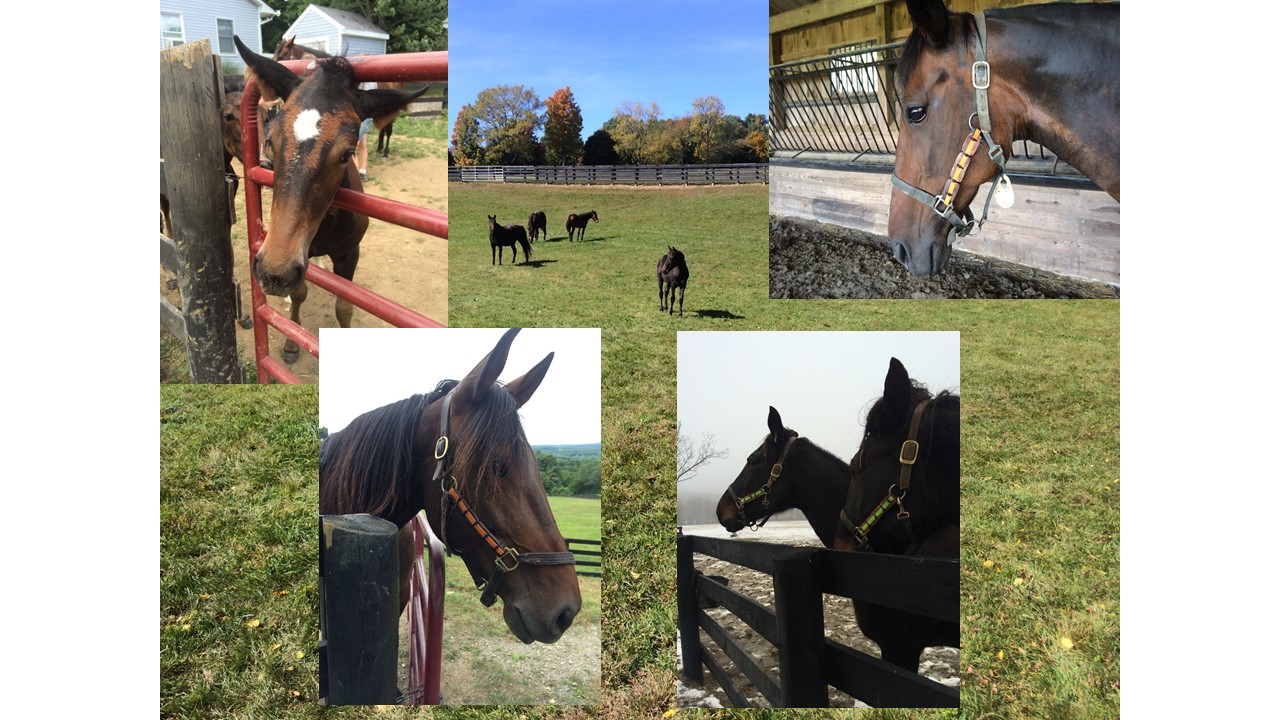

In recent years a high prevalence of neonatal foals born with neurological deficits (altered mentation and dysphagia) was observed at a horse farm located in Pennsylvania (PA). The farm proprietor also owned another farm in New York (NY) where mares and foals did not exhibit any unusual health outcomes. Both farms used identical animal husbandry practices and shared feed sources. Over the last 5 years the frequency of dysphagia in foals at the PA facility has increased from 25 to 92%. To evaluate potential farm-specific chemical impacts, passive sampling devices (PSDs) were deployed on brood mares at both farms continually over a two-year period. PSDs were also deployed in the ambient air and in well water at each farm. Collaborators from the Cornell Department of Population Medicine and Diagnostic Science also took biological samples from mares and foals (urine and blood) when appropriate.
Individual mare PSDs were recovered at rates of 95% and 92% from horses on the NY and PA farms respectively, showing that this adaptation of PSDs is robust enough to withstand the equine environment. Chemical analysis for PAHs on mare-deployed PSDs resulted in quantitative identification of 60 individual PAHs. Continued analysis of biological samples from each mare-foal pair and analysis of PSDs could reveal environmental stressors associated with this negative health outcome in a mammal model.